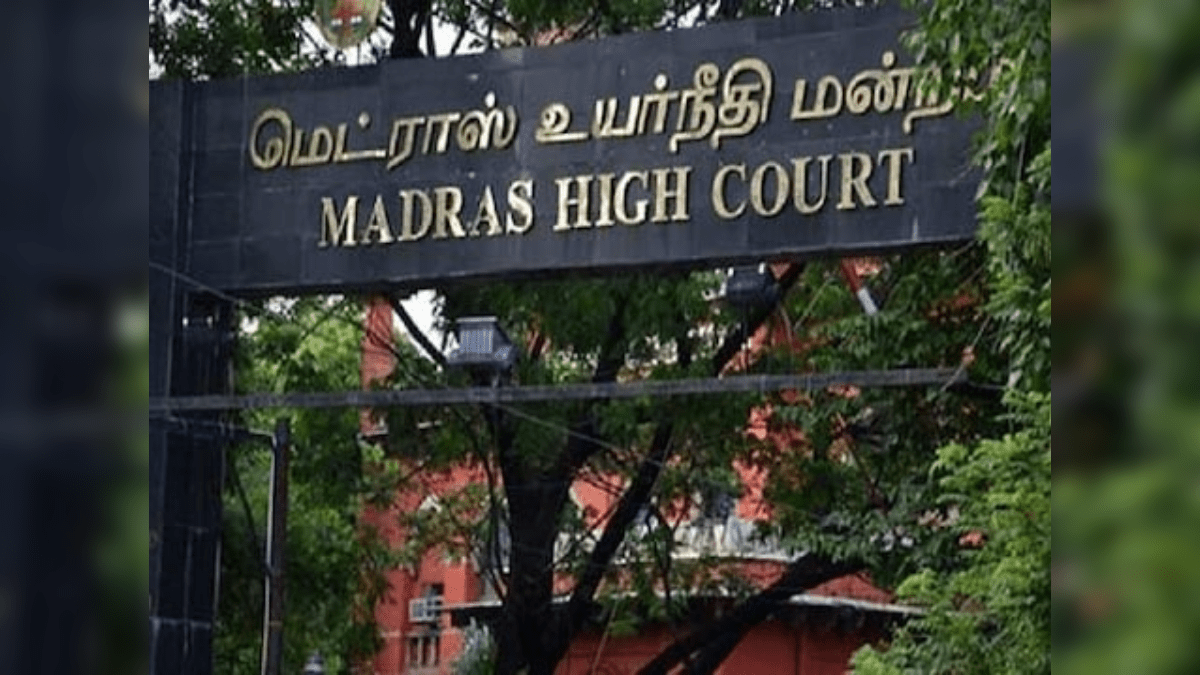Lawyer Solicitation Through Online Platforms: In a landmark judgment passed on July 3rd, 2024, the Madras High Court took a strong stance against lawyers soliciting work through online service providers. The court emphasized that the legal profession is not a business driven by profit, but rather a service to society. The verdict comes in response to a petition filed against websites like Quikr, Sulekha, and Justdial, which offered online lawyer services.
Madras High Court Cracks Down on Lawyer Solicitation Through Online Platforms

Unethical Solicitation and Violation of Rules:
The court, presided over by Justice SM Subramaniam and Justice C Kumarappan, highlighted that such practices violate the Bar Council of India (BCI) Rules. These rules strictly prohibit lawyers from advertising or soliciting work directly or indirectly, including actions like furnishing newspaper comments or publishing photographs related to cases.
The bench pointed out the fundamental difference between the legal profession and other professions. Legal services are not a “job” or a “business,” but rather a means to provide social welfare. While lawyers do receive fees, these fees are a token of respect for their knowledge and time invested in a case.
Dignity and Integrity at Stake on Lawyer Solicitation Through Online Platforms :
The court expressed concern about the growing trend of “business models” within the legal profession. Practices like lawyer rankings and customer ratings were deemed detrimental to the dignity and integrity expected from legal professionals.
Justice Subramaniam stated, “It is agonising that some legal professionals today are trying to adopt a business model. Legal service is neither a job nor a business. A business is driven purely by profit motive. But in law, the larger part is a service to the society. Though a service fee is paid to a lawyer, it is paid out of respect for their time and knowledge.”
Action Against Online Platforms and Lawyers:
The court’s directive mandates the BCI to take action against online service providers who facilitate the publication of lawyer advertisements. This includes registering complaints against these platforms for aiding and abetting illegal activities. Additionally, the BCI is instructed to request the removal of existing advertisements by lawyers and advise these platforms against publishing such content in the future.
Reasoning Behind the Ruling:
The petitioner in the case argued that online lawyer services violate the BCI Rules and constitute misconduct under the Advocates Act. While these websites claimed to offer mere directory services, the court saw through this facade. The evidence indicated that these platforms were selling legal services at fixed prices, which is expressly prohibited by BCI regulations.
The court further criticized the websites’ independent lawyer rating systems, calling them baseless and lacking any proper authorization. The act of lawyers registering themselves on these platforms was also seen as diminishing the profession’s nobility.
Protecting the Justice System and Promoting Equality:
The court identified three key rationales behind the ban on lawyer advertising. Firstly, unregulated marketing can erode the esteemed nature of the legal profession and undermine the integrity of the justice system itself. Lawyers, as upholders of the law, cannot engage in practices that treat their profession as a business venture.
Secondly, unregulated advertisements pose the risk of spreading misinformation among the public. Platforms publishing unverified information about lawyers can mislead people seeking legal assistance. This can lead to a loss of faith in the judicial process.
Thirdly, the court emphasized the importance of a level playing field in the legal system. The intention is to bridge the economic divide and ensure everyone stands equal before the law. The legal profession shouldn’t be a “race to the top” but a service dedicated to assisting the less fortunate. Advertisements that overtly or covertly prioritize certain lawyers undermine these principles of fairness and justice.
Lawyer Solicitation Case Details and Next Steps:
The judgment comes in the case titled “Mr. P.N. Vignesh vs. The Chairman and Members of the Bar Council, BCI” (W.P.No.31281 of 2019). The court ordered the websites to remove all content violating BCI rules within four weeks.
Read More
- 6 Charged with Cheating and Criminal Conspiracy: Sterling Holidays Executives Booked for Fraud
- Witness Turns Hostile? Supreme Court Explains When Conviction Still Stands
- “How to Stay Safe Online?” Cybercrime campaign by the IT ministry
- Foreign Lawyers Can Only Offer Legal Advice on Foreign Law to Foreign Clients: BCI
- Answer for Building Cracks Due to Illegal Mezzanine Floor: What Steps to Take?
- Careers in Legal Profession as Lawyers
- Building Cracks Due to Illegal Mezzanine Floor: What Steps to Take?
This landmark decision serves as a strong reminder of the core principles of the legal profession. Lawyers are expected to uphold ethical standards and prioritize service to society above personal gain. The court’s action sends a clear message to online platforms and lawyers alike, safeguarding the integrity of the legal system and ensuring equal access to justice for all.

